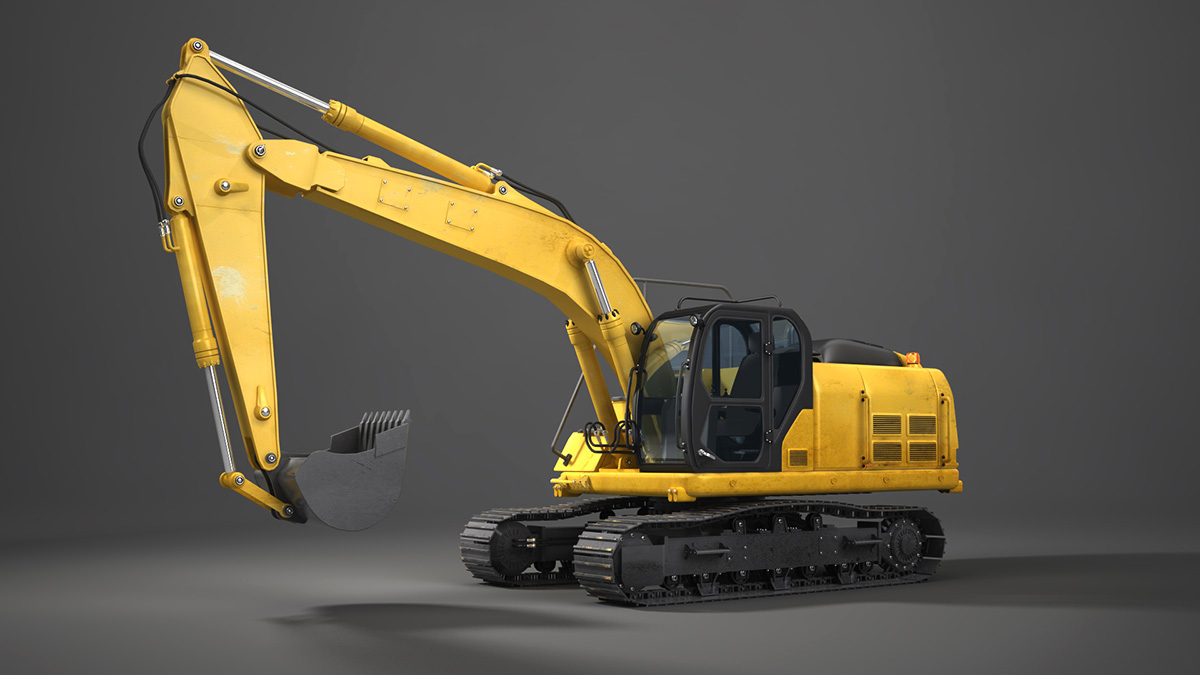How to Ensure You're Choosing Quality Used Heavy Machines
Discover the best practices when it comes to choosing quality used heavy machines. Take control of your investments.

In the quest for quality used heavy machines, many businesses in the heavy equipment industry find themselves in a conundrum. Procuring equipment brand new might seem tempting. However, the high cost factor cannot be overlooked. Used heavy machines, on the other hand, promise affordability, but how do you ensure quality and reliability? This article provides insights and best practices to guide you through the process of choosing superior quality used heavy machines.
Your Guide to Choosing Quality Used Heavy Machines
When it comes to the heavy equipment industry, making a wise investment means opting for machines that deliver on both quality and durability. Whether you're replacing old equipment or adding to your existing fleet, understanding what to look for in used heavy machines can save you money in the long run while ensuring a smooth flow of operations.
Table of Contents
- Check Machine History
- Understand the Price
- Physical Inspection
- Operational Test
- Machine Age & Maintenance
- Warranty Considerations
- Save Without Sacrificing Quality
Check Machine History
When assessing quality used heavy machines, a crucial first step is understanding the machine's history. Knowing where and how the machine has been used previously, who its former owners were, and what work it was used for can provide invaluable insights. If it was used on tough terrains or in harsh climates, it might have endured more wear and tear than a machine used in more lenient conditions.
It is also equally important to inquire about the accident and repair history. Any history of major mishaps or frequent repairs might indicate underlying problems that could resurface later. Having this information at hand allows an informed decision making.
Understand the Price

In the game of purchasing used heavy machinery, the price tag can tell a tale. An unnaturally low price may be a red flag for potential hidden issues, while an overpriced machine doesn't necessarily guarantee top quality. Understanding the market price for the specific machine, and its model, will help you gauge a fair price.
Here's a simple pricing checklist to guide you in this process:
- Research the current market value: Online platforms and auctions can give you a ballpark figure of the machine's worth.
- Consider the machine’s condition: Wear and tear, age, and operational efficiency should factor into the pricing.
- Check for any additional attachments or features: These can add to the cost. Ensure that you're not paying for unnecessary extras.
Evaluate return on investment (ROI)
Beyond the initial cost, it's crucial to evaluate the machine's prospective ROI. Calculate operational and maintenance costs, and consider the machine's remaining lifespan to assess its total cost of ownership(TCO).
Physical Inspection
While the machine’s history and pricing provide a good understanding, a detailed physical inspection is non-negotiable. You can’t verify a machine's condition purely from documents or the seller's word. Getting your hands dirty might reveal crucial information that might get otherwise overlooked.
Note the following during your inspection:
- Tires/Tracks: Look for any cuts, embedded objects or tread wear.
- Engine: An overly dirty engine might show poor maintenance. Check for leaks or smoke which might indicate severe issues.
- Hydraulics: Check for any visible leaks, odd noises, or slow response times.
- Cab: Wear on the seats, controls or broken gauges might indicate hard use.
Remember, a professional and comprehensive machine inspection can save you from significant future troubles. It’s often recommended to have an experienced mechanic or inspector by your side during this process. They can identify potential problems and evaluate the machine using their expertise.
Operational Test

Operational tests are a surefire way to verify a machine's performance and reliability. It's akin to taking a test drive before buying a used car. During an operational test, pay close attention to how the machine responds to commands, how smoothly it operates, and whether there are any unusual noises or vibrations. If possible, perform the test under load conditions to understand how the equipment performs during actual work situations.
It's also a good idea to check the engine's starting capability, especially in cold weather, as difficulties during start-up can be a sign of potential problems. Remember: "The proof of the pudding is in the eating", and in this case, nothing beats verifying the performance of the machine hands-on.
Machine Age & Maintenance
When considering used heavy machines, age and maintenance records play a significant role in determining their quality. Older machines could well have more wear and tear. However, the way a machine has been cared for during its lifespan can often matter more than its chronological age. Quality maintenance can indeed keep a machine running efficiently far beyond its expected life span.
- Consider the Machine's Hours: Much like a car's mileage, the hours a machine has been operational indicate its use level. It's a good idea to understand what counts as high or low hours for the specific type of machine you're considering.
- Ask for Maintenance Records: Well-documented service and maintenance records are a positive sign. They reveal how well the machine has been cared for and can also detail any recurring issues.
- Check for Recent Replacements or Repairs: Recent part replacements might indicate that these parts are less likely to break down soon. However, frequent repairs might indicate underlying issues, and one must tread cautiously.
Appraise the Machine's Longevity
Once you have evaluated the machine's age and maintenance history, it's time to appraise its potential longevity. Will it suit your long-term needs, or will it require replacement soon? Keep in mind that a machine's life cycle is significantly affected by its usage patterns, maintenance level, and overall care.
Warranty Considerations
When purchasing used equipment, warranty becomes a vital factor. Warranties decrease risk and provide a safety net for buyers in the event of unexpected breakdowns or damages. It's always wise to choose a seller offering a solid warranty clause. Understand the details of the warranty, what it covers, its duration, and any terms and conditions associated with it.
"The crucial part of warranty shopping isn't just finding a warranty. But understanding what the warranty covers and doesn't cover," advises John Dillinger, veteran in the heavy equipment industry.
Save Without Sacrificing Quality
In conclusion, buying quality used heavy machines is a fine act of balance. Ensuring equipment quality without blowing your budget requires diligence, research, and a thorough understanding of heavy machinery. Follow the discussed best practices, and you'll be well on your way to securing a worthy investment for your heavy equipment fleet.
Remember, it's always better to err on the side of caution. If you have any doubts while buying a used machine, it's advisable to consult an expert or defer your decision until a better option comes along.
Abiding by these guidelines will empower you to make an informed decision when buying used heavy machines - one that ensures the optimal use of resources, extends operational efficiency, and ultimately, furthers the growth and success of your business.
What's Your Reaction?









































































